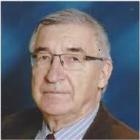When a major terrorist incident occurs, the media tend to turn to academic experts and ask them to comment both on the terrorist perpetrators and the government’s response. Quite often, the experts seem to know better than the government itself what the best response should be. One frequently heard piece of advice is that the government should not “over-react”. It is true that too strong a reaction might alienate parts of the public, sectors of which might find themselves suddenly suspected of providing an enabling environment for terrorists. On the other hand, too weak a reaction might embolden a terrorist group, making the government look like a “paper tiger”. The question is: who decides what the “right” level of reaction is and how can one know that beforehand?
To answer such questions, governments might depend on in-house expertise, might rely on trusted think tanks or might turn to academic experts. The government’s in-house expertise lies mainly with the intelligence services. Think tanks, especially in the US, are often linked to political parties or, indirectly, to the military-industrial complex. Their views might be biased by partisanship. This leaves academia and academically trained non-governmental experts as a relatively independent source of knowledge, the one most likely to be able to ‘speak truth to power”.
Yet how well is advice from academics received in the halls of government? Contrary to what some critics think, academic advice is not as frequently sought as they assume. While adherents of the Critical Terrorism Studies school denounce many of their more mainstream colleagues as “terrorologists”, accusing them of preparing, with their intellectual work, the ground for government surveillance and repression, the reality is that many governments in many countries pay little or no attention to what academics say when it comes to combatting terrorism. There are several reasons for this. Some governments consider academics as a group as being “left of centre”, or feel that they are “living in an ivory tower”, too far removed from practical politics, making academic findings largely irrelevant for operational purposes. Those in the intelligence community often look down on academics, accusing them of not knowing what they are talking about when it comes to contemporary terrorist groups. They themselves, of course, have access to “top secret” information while academics have to do with “open sources” only.
The academic community and the intelligence community often appear to live in different worlds. As Marc Sageman, the American terrorism expert who made the transition from intelligence to academia, puts it in a polemic on The Stagnation in Terrorism Research, “[w]e have a system of terrorism research in which intelligence analysts know everything but understand nothing, while academics understand everything but know nothing”. Sageman is right in that intelligence analysts often have too many data and not enough time, manpower and language skills to analyse these, while academics have too many theories and not enough good data to test them. The result is a great deal of speculative theorising that is not solidly grounded in empirical evidence.
Yet there is a strong case to be made for closer cooperation between governments and academia when it comes to terrorism. Both can benefit greatly from this cooperation. However, there are several obstacles. Academics want to conduct thorough studies while governments want results at short notice. The questions that interest academics are often not the same for which governments seek answers. Academics are afraid that they will have to give up some of their cherished intellectual independence when working with, or for, governments. Governments, on the other hand, expect that research results will not be used to openly discredit existing government policies when access is granted to privileged information, especially when academic research is government funded.
However, if academics could get access to primary data from intelligence agencies, governments could profit from new ideas from universities on how to deal with terrorism in a better way. Treasure troves of raw data, gathering dust on the shelves and in the digital files of intelligence agencies lacking time to study them, could finally be (re-) analysed and at the same time improve the relevance of academic research. Yet in the absence of trust, governments rely too often on reports of “reliable” think tanks, often staffed by former intelligence and security service officials. They tend to produce ‘safe’ research results that are not placing governments in an uncomfortable position vis-à-vis the public. In fact, many think tank reports are not even published – while academics are eager to publish their findings as this advances their field of study as well as their own careers.
Governments spend very large sums of money on countering terrorism. Yet most of their counter-measures are not properly evaluated. Many counter-terrorism expenditures might be of dubious value; some might even be counter-productive. Therefore, a strong case can be made to invite academics to evaluate policies on their effectiveness. For retrospective evaluations, the data required are usually not so sensitive that their disclosure jeopardises ongoing counter-terrorist operations. Evaluation studies are a sine qua non for optimising counter-terrorism tactics and strategies. No responsible democratic government should be afraid of external nonpartisan scrutiny. It is first and foremost in this area of evaluation studies that governments should open the door more widely to academic research and share, for that purpose, the necessary data. Such research costs relatively little compared to the savings that can be achieved by discontinuing practices of counter-terrorism that are not producing the desired results. Admittedly, it requires some courage from the side of policymakers to open recent (as opposed to historical) archives for evaluation. Yet the savings and rewards are potentially large, as such evaluations can prevent governments from both under- and over-reacting in the future.
It is by now clear that there have been no real breakthroughs in containing and controlling the spread of terrorism, despite great investments. At the same time, the inroads made by many governments on the civil rights of their citizens in the name of fighting terrorism have been substantial. Marshalling the intellectual potential of academia more fully than hitherto is overdue. ‘Speaking truth to power’ is something democracies cannot afford to do without. While academics too might not be in full possession of ‘truth’, they are more likely than anybody else to come close to it, if provided with the right access and resources that often often only governments can provide. Policy and science must come closer together, not only to lessen the threat of terrorism, but also to minimise misguided responses to it.








